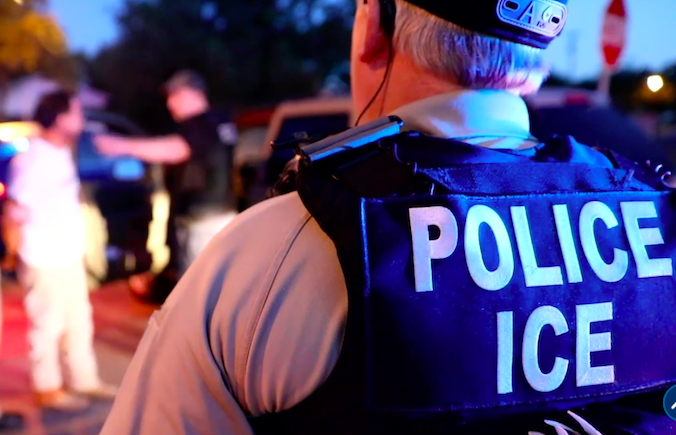
ICE
Despite an announcement from ICE that agents will temporarily stay away from hospitals during the pandemic, some people are still too afraid to seek care, and that is detrimental to the public health.Imagine needing urgent medical care because COVID-19 has sickened you to the point where you can barely breathe or even walk a few steps to the kitchen for water. Now, imagine you’re in this same, terrifying condition, but afraid that if you go to the hospital you may be arrested or detained by Immigration and Customs Enforcement (ICE) agents. Or if you do get to the hospital, you won’t be able to communicate with the medical staff because you don’t speak English or can’t afford the medical bills because you don’t have health insurance. For many New Yorkers, these nightmares are all too real.
This unprecedented public health crisis has further illuminated existing discrimination and inequities in access to medical care, especially for one community disproportionately impacted by COVID-19: immigrants. Inequality is unacceptable under any circumstance, but now the situation has become increasingly dire. More than ever, New York needs an accessible medical system for all through universal health coverage, equitable healthcare services, and facilities that are immigration enforcement-free zones.
More than one million people in New York State remained uninsured in 2019, including nearly 600,000 New York City residents, and uninsured rates are higher among Black and Latino people than white individuals. Many immigrant families are also not applying for health coverage because they fear the potentially chilling effect from the “public charge” rule, which allows the government to deny a person a green card, a visa extension, or permission to enter the country if they may require public assistance. The high number of uninsured New Yorkers is especially troubling in Queens (which has the highest number of COVID-19 cases of any borough, and 47 percent of its residents are immigrants) and the Bronx (which has the highest infection rate, and 35 percent of its residents are immigrants).
Health insurance demonstrably supports better health outcomes, yet too many immigrant New Yorkers are blocked from it, so they cannot avail themselves of life-saving healthcare. Equitable access to medical care can help address health disparities among racial and ethnic groups now and in the future.
Even with coverage, language and other communication barriers in healthcare facilities undermine care. Translation services for patients who are not proficient in English are now remote for hospitals across the country, as safety measures prevent in-person language support. The strained communication between healthcare providers, patients, and translators is leading to severe consequences. Health outcomes in the U.S. are routinely worse among patients who are not English-proficient and have a hard time accessing interpreters. Now doctors are actually reporting poorer quality of care for these individuals – and it may even be contributing to higher COVID-19 death rates. For example, Latino New Yorkers account for 34 percent of deaths in the city, despite constituting only 29 percent of the population.
Hospitals and other health facilities must implement systems and services to provide accessible care for all. Despite an announcement from ICE that agents will temporarily stay away from hospitals during the pandemic, some people are still too afraid to seek care, and that is detrimental to the public health. We must ensure that healthcare facilities are safe for all patients and that ICE agents are permanently kept out. Health systems also need more staff who speak multiple languages. Every patient – no matter which language they speak – must be able to communicate with their health providers.
The current public health emergency has laid bare the devastation already marginalized communities face when a crisis hits, but accessible services should have already been in place. New York should also guarantee health insurance for every state resident, regardless of immigration status, disability, age, employment status, income or health status – the proposed New York Health Act is an important step in that direction. For now and for the long-term, the healthcare system must be safe, equitable and accessible to all.
Amber Khan is the director of Health Justice at New York Lawyers for the Public Interest.








